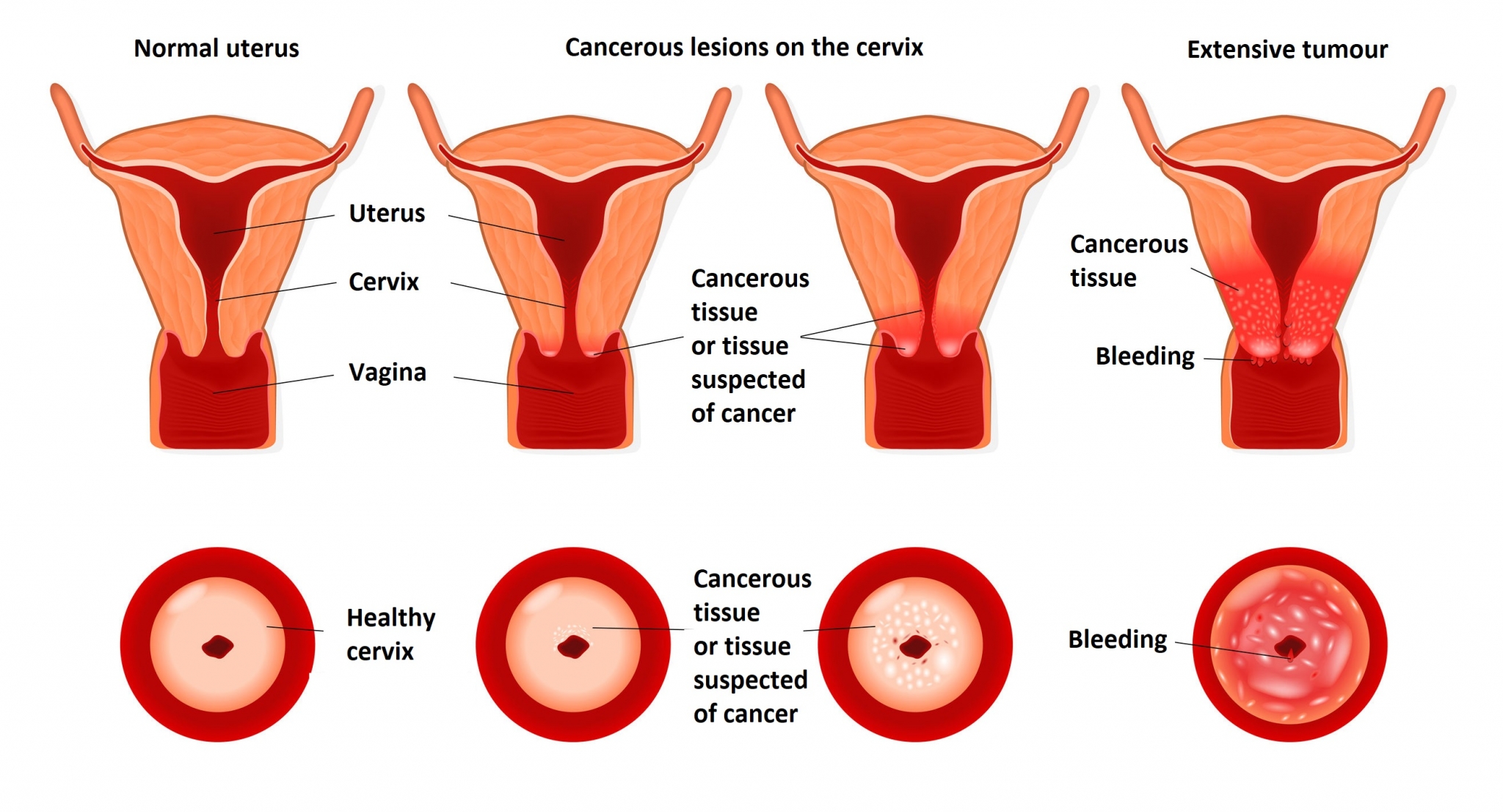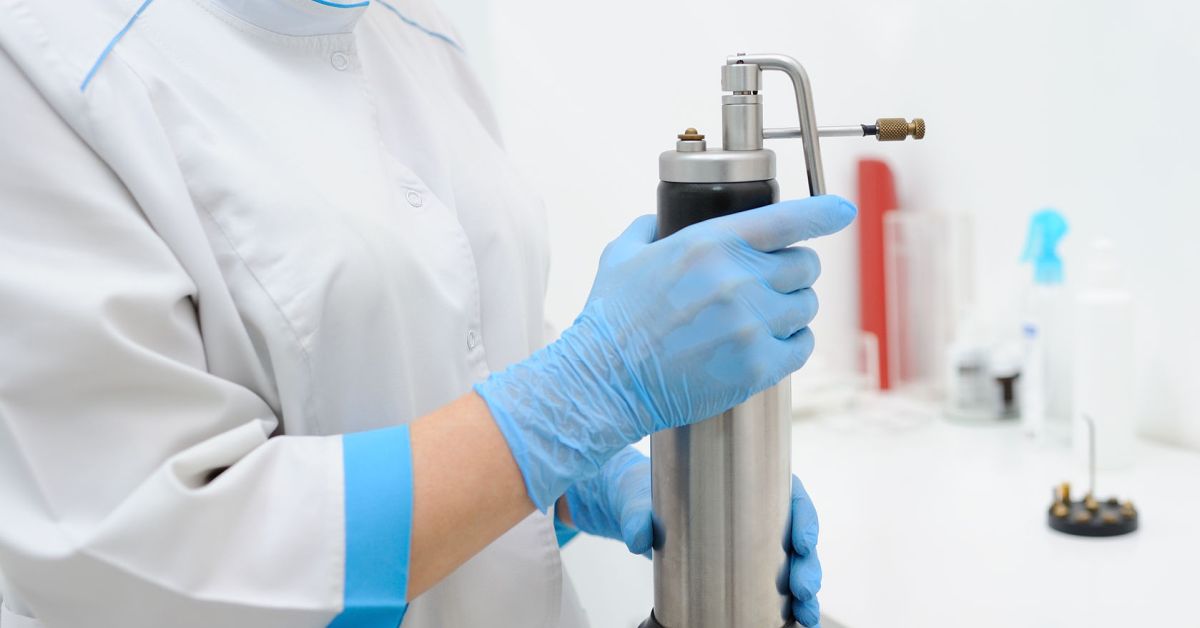Cervical cryotherapy
What is cervical cryotherapy and when is it necessary?
Cervical cryotherapy is an intervention done with a freezing technique, during which abnormal tissues in the cervix freeze, followed by tissue death.
Development of cervical cancer
Cervical cancer is usually caused by certain types of HPV (human papilloma virus) that enter the body through sexual contact. Of the more than a hundred known types, we distinguish between low-risk (LR) and high-risk (HR) viruses.
Viruses 16, 18, 31, 33, 35, 45, and the high-risk 52 may play a significant role in the development of cervical cancer. Its prevalence is proven by the fact that nearly 80 percent of women become infected with certain types of the virus during their lifetime.
With the help of a properly functioning immune system, the body defeats the virus within 1-2 years, but for the prevention of cervical cancer, it is very important to participate in regular (annual) gynaecological screening (cytological smear test) from the beginning of active sexual life, HPV standardization (detection at the DNA level) and then half-yearly screening if high-risk virus or viruses were detected during standardization. We can effectively protect against the disease that develops over several years with regular cervical screenings, as the cell changes detected in time can be treated with complete success.

Prevention of cervical cancer
- HPV vaccination
- Avoidance of frequently changing partners, monogamy
- Responsible sex (using a condom does not provide complete protection either because the virus can spread through contact with intimate skin surfaces)
- Regular cervical screening
Indications and meanings of precancerous conditions of the cervix
Precancerous condition: CIN (cervical intraepithelial neoplasia), i.e. cervical dysplasia, which means the abnormal development of cells.
- CIN I: mild dysplasia, may heal spontaneously
- CIN II: moderate dysplasia with cell changes in two-thirds of the cervical mucosa
- CIN III: severe dysplasia, an abnormal lesion of more than two-thirds of the cervical mucosa.
How does cryotherapy work?
Freezing treatment of the cervix takes only a few minutes. The vagina is exposed using a so-called colposcope and the cervix is brought into view.
A head shaped according to the shape of the cervix is placed on the surface to be treated and then the area is frozen.
The intervention takes place within the framework of outpatient care, so the patient can leave the hospital shortly after the cryotherapy procedure and start working the next day.

What complications can occur?
There are no significant complications of the painless and fast procedure.
However, after the procedure, there is a coloured flow for 3-4 weeks, which is the result of the rejection of the dead tissue.
The duration of complete healing (new epithelial formation) is 4 weeks, until then sexual intercourse and sitting bath should be avoided.
What is included in the price of our surgeries?
- costs of the surgery
- costs of anesthesia (local or general anesthesia, postoperative pain relief)
- the costs of the planned hospital stay and care
- necessary medicines and certain medical aids during the stay
- inpatient physiotherapy treatment (if necessary for rehabilitation)
- if necessary, the fee for the planned histological examination
- the price of the first follow-up examination
What additional costs might be expected?
- implants
- consultation with the anesthesiologist (must be done in Medicover)
- pre-operative examinations (if performed by us)
- in case of blood group antibody positivity, the blood matching fee
- hotel service fee for extra care days
- aids for further rehabilitation
- accompanying person staying in the hospital
- day (with one meal) 20 000 HUF
- night (full board) 60 000 HUF
- furthermore, if necessary, the cost of the 2nd follow-up examination is the fee of the specialist examination -50%, the cost of the 3rd follow-up examination is the fee of the specialist examination -30%
The course of the surgery
Before surgery
- pre-surgery specialist consultation, where the specific surgical proposal is made
- consultation with the Case Manager
- general information if necessary
- preparation of a written quotation
- booking surgery and preliminary examination appointments
- payment
-
carrying out pre-operative examinations
-
arrival for surgery
On the day of surgery
- arrival at Medicover Hospital at 6:30
- check-in at the reception on the ground floor
- occupying a room accompanied by a nurse, who provides information
- morning visit with the specialist physician and anesthesiologist
- surgery
- postoperative monitoring
- afternoon visit with the specialist physician
- constant anesthesiology specialist monitoring in the postoperative period
- discharge (with an accompanying person), final report and handing over a certificate
Surgical service process
- surgery
- hospital stay and care
- planned histology
- follow-up examination, sutur removal
